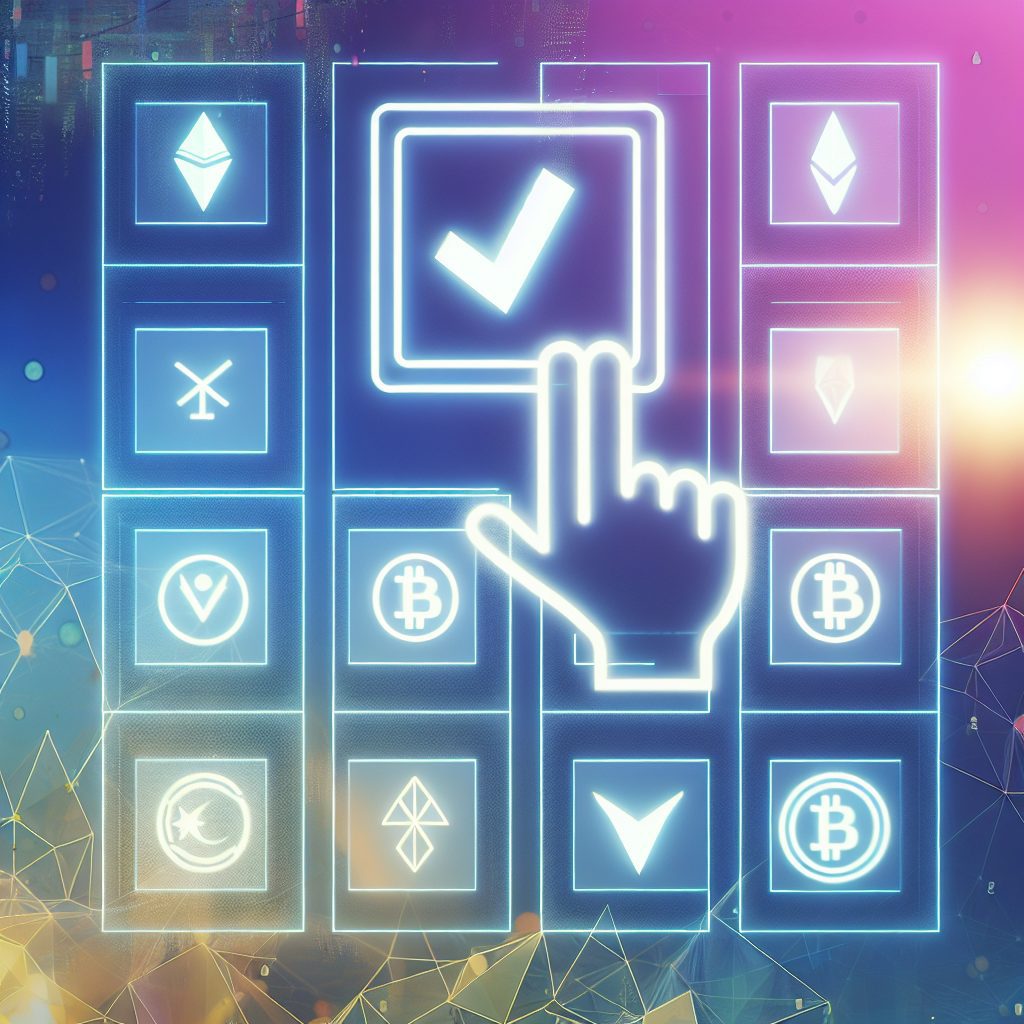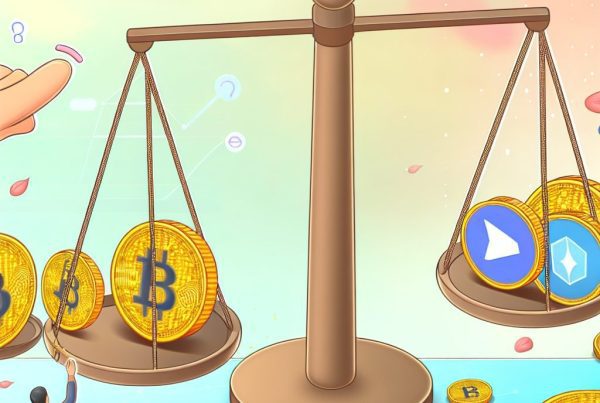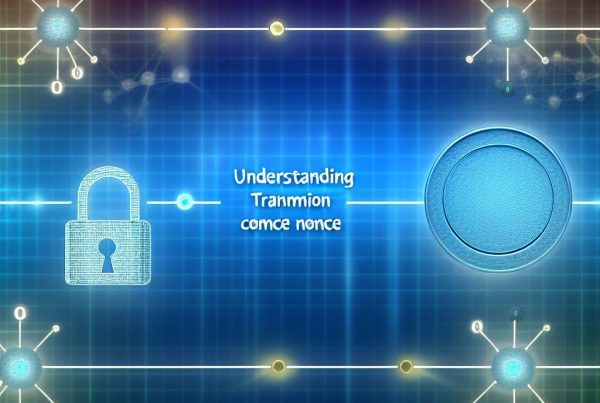How to Participate in Crypto Governance
The world of cryptocurrency is not just about trading and investing; it also involves a unique form of governance that allows participants to influence the direction of projects and protocols. Understanding how to engage in crypto governance is essential for anyone looking to make a meaningful impact in the blockchain space. This article will guide you through the various aspects of crypto governance, including its importance, methods of participation, and real-world examples.
Understanding Crypto Governance
Crypto governance refers to the mechanisms and processes through which stakeholders in a blockchain network make decisions regarding the protocol’s development, upgrades, and overall direction. Unlike traditional governance systems, which often involve centralized authorities, crypto governance is typically decentralized, allowing for a more democratic approach.
Key components of crypto governance include:
- Decentralization: Power is distributed among participants rather than concentrated in a single entity.
- Transparency: All decisions and processes are recorded on the blockchain, ensuring accountability.
- Inclusivity: Anyone with a stake in the network can participate in governance decisions.
The Importance of Crypto Governance
Participating in crypto governance is crucial for several reasons:
- Influence Development: Governance allows stakeholders to influence the development and features of a project.
- Community Engagement: It fosters a sense of community and belonging among participants.
- Security and Stability: Effective governance can enhance the security and stability of a blockchain network.
Methods of Participation in Crypto Governance
There are various ways to participate in crypto governance, depending on the specific blockchain or project. Here are some common methods:
1. Voting
Many blockchain projects implement a voting system where token holders can vote on proposals. This can include decisions about protocol upgrades, changes in governance structures, or funding allocations.

For example, in the Ethereum ecosystem, Ethereum Improvement Proposals (EIPs) are submitted for community review and voting. Token holders can express their opinions and vote on these proposals, influencing the future of the network.
2. Delegated Voting
Some projects use a delegated voting system, where token holders can delegate their voting power to representatives. This method is often seen in projects like Tezos, where stakeholders can choose delegates to vote on their behalf, ensuring that even those who may not have the time or expertise to vote can still have their voices heard.
3. Governance Tokens
Governance tokens are specific tokens that grant holders the right to participate in governance decisions. Projects like Uniswap have introduced governance tokens (UNI) that allow holders to vote on key issues affecting the platform.
4. Proposals and Discussions
Participating in discussions and submitting proposals is another way to engage in governance. Many projects have forums or platforms where community members can discuss ideas, suggest improvements, and propose changes. For instance, the Cardano Forum serves as a space for community members to engage in discussions about the future of the Cardano network.
Real-World Examples of Crypto Governance
Several projects have successfully implemented governance mechanisms that allow for community participation. Here are a few notable examples:
1. MakerDAO
MakerDAO is a decentralized autonomous organization that governs the Maker Protocol, which allows users to create and manage the DAI stablecoin. MKR token holders participate in governance by voting on proposals that affect the stability and functionality of DAI. This includes decisions on risk parameters, collateral types, and system upgrades.
2. Compound
Compound is a decentralized finance (DeFi) protocol that allows users to lend and borrow cryptocurrencies. The governance of Compound is managed through the COMP token, which enables holders to propose and vote on changes to the protocol. This includes adjustments to interest rates, collateral factors, and other critical parameters.
3. Polkadot
Polkadot employs a unique governance model that includes a council and a technical committee. DOT token holders can vote on council members, who represent the community’s interests. The council proposes referenda, which are then voted on by the entire community, allowing for a structured yet democratic governance process.
Challenges in Crypto Governance
While crypto governance offers many benefits, it also faces several challenges:
- Voter Apathy: Many token holders may not participate in governance due to a lack of interest or understanding.
- Centralization Risks: In some cases, a small number of holders may control a significant portion of voting power, leading to centralization.
- Complexity: The technical nature of proposals can deter participation from less experienced users.
How to Get Started with Crypto Governance
If you’re interested in participating in crypto governance, here are some steps to get started:
1. Choose Your Projects Wisely
Identify projects that resonate with your values and interests. Research their governance structures and understand how decisions are made. Look for projects with active communities and transparent processes.
2. Acquire Governance Tokens
To participate in governance, you often need to hold specific tokens. Purchase these tokens through reputable exchanges and ensure you store them securely in a wallet that supports governance features.
3. Stay Informed
Follow project updates through official channels such as social media, forums, and newsletters. Staying informed will help you understand ongoing discussions and proposals.
4. Engage with the Community
Join community forums, Discord channels, or Telegram groups to engage with other participants. This will provide insights into the governance process and allow you to voice your opinions.
5. Participate in Voting
When proposals arise, take the time to review them and cast your vote. Your participation is crucial in shaping the future of the project.
FAQs about Crypto Governance
What is the role of governance tokens?
Governance tokens grant holders the right to vote on proposals and influence decisions within a blockchain project. They are essential for decentralized governance.
How can I find out about upcoming proposals?
Most projects announce upcoming proposals through their official channels, including social media, forums, and newsletters. Joining community groups can also provide timely updates.
Is it necessary to hold a large number of tokens to participate?
No, while having more tokens can increase your voting power, many projects allow for participation regardless of the number of tokens held. Every vote counts.
What happens if I don’t participate in governance?
While you can still hold your tokens, not participating means you miss the opportunity to influence the project’s direction and decisions that may affect your investment.
Conclusion
Participating in crypto governance is an empowering way to engage with blockchain projects and influence their future. By understanding the various methods of participation, staying informed, and actively engaging with the community, you can make a meaningful impact in the cryptocurrency space. As the industry continues to evolve, your voice can help shape the future of decentralized finance and blockchain technology.
For the latest news and updates in the crypto world, consider visiting Bitrabo. You can also follow me on social media for more insights: X, Instagram, and Threads.
Disclaimer: This article is for informational purposes only and should not be considered financial advice. Always do your own research before participating in any cryptocurrency project.
The Crypto Watchlist of the Week 🔎
Subscribe to receive expert-curated projects with real potential—plus trends, risks, and insights that matter. Get handpicked crypto projects, deep analysis & market updates delivered to you.


